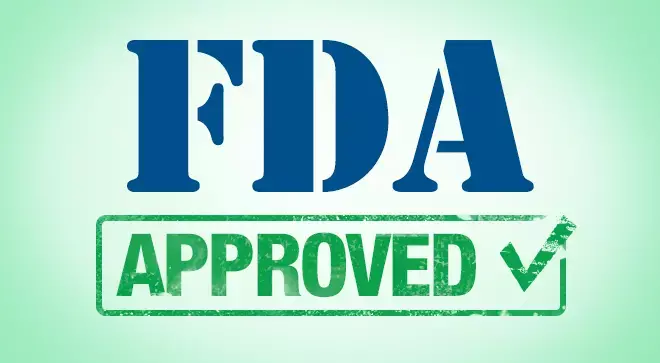- Home
- Medical news & Guidelines
- Anesthesiology
- Cardiology and CTVS
- Critical Care
- Dentistry
- Dermatology
- Diabetes and Endocrinology
- ENT
- Gastroenterology
- Medicine
- Nephrology
- Neurology
- Obstretics-Gynaecology
- Oncology
- Ophthalmology
- Orthopaedics
- Pediatrics-Neonatology
- Psychiatry
- Pulmonology
- Radiology
- Surgery
- Urology
- Laboratory Medicine
- Diet
- Nursing
- Paramedical
- Physiotherapy
- Health news
- Fact Check
- Bone Health Fact Check
- Brain Health Fact Check
- Cancer Related Fact Check
- Child Care Fact Check
- Dental and oral health fact check
- Diabetes and metabolic health fact check
- Diet and Nutrition Fact Check
- Eye and ENT Care Fact Check
- Fitness fact check
- Gut health fact check
- Heart health fact check
- Kidney health fact check
- Medical education fact check
- Men's health fact check
- Respiratory fact check
- Skin and hair care fact check
- Vaccine and Immunization fact check
- Women's health fact check
- AYUSH
- State News
- Andaman and Nicobar Islands
- Andhra Pradesh
- Arunachal Pradesh
- Assam
- Bihar
- Chandigarh
- Chattisgarh
- Dadra and Nagar Haveli
- Daman and Diu
- Delhi
- Goa
- Gujarat
- Haryana
- Himachal Pradesh
- Jammu & Kashmir
- Jharkhand
- Karnataka
- Kerala
- Ladakh
- Lakshadweep
- Madhya Pradesh
- Maharashtra
- Manipur
- Meghalaya
- Mizoram
- Nagaland
- Odisha
- Puducherry
- Punjab
- Rajasthan
- Sikkim
- Tamil Nadu
- Telangana
- Tripura
- Uttar Pradesh
- Uttrakhand
- West Bengal
- Medical Education
- Industry
Posimir effective for Postsurgical Analgesia approved by FDA

POSIMIR, a bupivacaine solution by the Durect Corporation recently got its approval from the FDA for Post-Surgical Pain Reduction for up to 72 Hours Following Arthroscopic Subacromial Decompression.
POSIMIR (bupivacaine solution) for infiltration, use is a novel and proprietary product that combines the strength of 660 mg of bupivacaine base with the innovative SABER® platform technology, enabling continuous sustained delivery of a non-opioid local analgesic over 3 days in adults. POSIMIR contains more bupivacaine than any other approved single-dose sustained-release bupivacaine product. At the end of the surgery, POSIMIR is administered into the subacromial space under direct arthroscopic visualization, where it continuously releases bupivacaine for 72 hours or more.
Sten Rasmussen and colleagues from the Department of Orthopaedic Surgery, Aalborg University Hospital, Denmark conducted a randomized, multicenter, assessor-blinded, placebo-controlled clinical trial in patients undergoing arthroscopic subacromial decompression surgery with an intact rotator cuff. The primary outcome measures were mean pain intensity and total opioid rescue analgesia administered, both evaluated over the first 72 hours after surgery versus placebo.
The researchers observed that POSIMIR demonstrated a statistically significant improvement in both primary outcome measures: a 1.3 point, or 20%, reduction in mean pain intensity on a 0-10 point pain scale (p=0.01), and a 67% reduction in I.V. morphine-equivalent rescue opioid use, from a median of 12 mg in the placebo group to 4 mg in the POSIMIR group (p=0.01).
However, Posimir administration reported certain adverse effects which included dizziness, dysgeusia, dysuria, headache, hypoesthesia, paresthesia, tinnitus, and vomiting. Following Posimir administration in soft tissue surgical procedures, the most common adverse reaction included anemia, bradycardia, constipation, C-reactive protein increased, diarrhea, dizziness, dysgeusia, headache, nausea, post-procedural contusion (bruising), procedural pain, pruritus, pyrexia, somnolence, surgical site bleeding, visible bruising, and vomiting.
Hence, the authors discussed that "Posimir was easy to administer into the subacromial space under arthroscopic guidance, where it can directly address the source of postsurgical pain."
A non-opioid product providing up to 3 days of local analgesia would be a significant benefit to patients, they further added.
Dr. Nandita Mohan is a practicing pediatric dentist with more than 5 years of clinical work experience. Along with this, she is equally interested in keeping herself up to date about the latest developments in the field of medicine and dentistry which is the driving force for her to be in association with Medical Dialogues. She also has her name attached with many publications; both national and international. She has pursued her BDS from Rajiv Gandhi University of Health Sciences, Bangalore and later went to enter her dream specialty (MDS) in the Department of Pedodontics and Preventive Dentistry from Pt. B.D. Sharma University of Health Sciences. Through all the years of experience, her core interest in learning something new has never stopped. She can be contacted at editorial@medicaldialogues.in. Contact no. 011-43720751
Dr Kamal Kant Kohli-MBBS, DTCD- a chest specialist with more than 30 years of practice and a flair for writing clinical articles, Dr Kamal Kant Kohli joined Medical Dialogues as a Chief Editor of Medical News. Besides writing articles, as an editor, he proofreads and verifies all the medical content published on Medical Dialogues including those coming from journals, studies,medical conferences,guidelines etc. Email: drkohli@medicaldialogues.in. Contact no. 011-43720751


